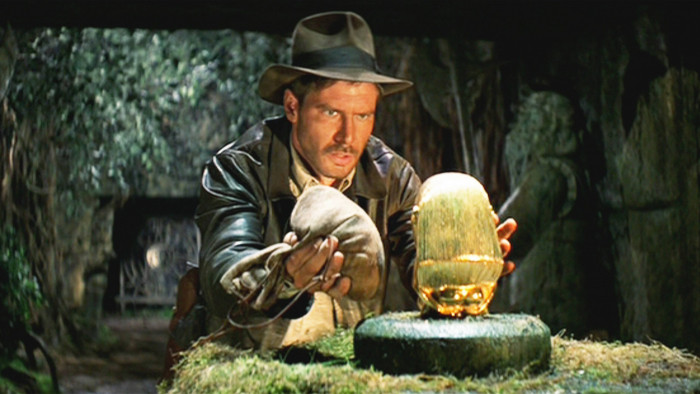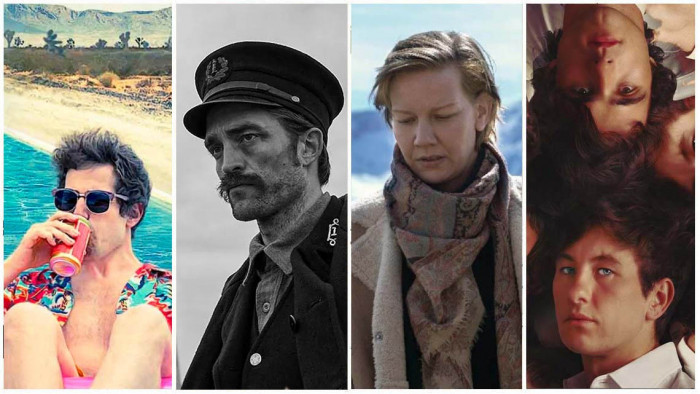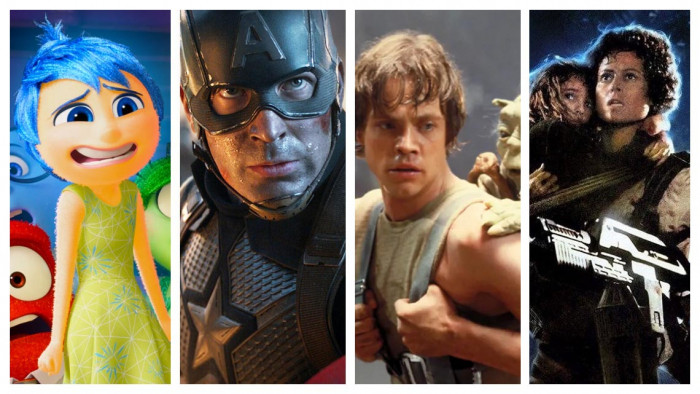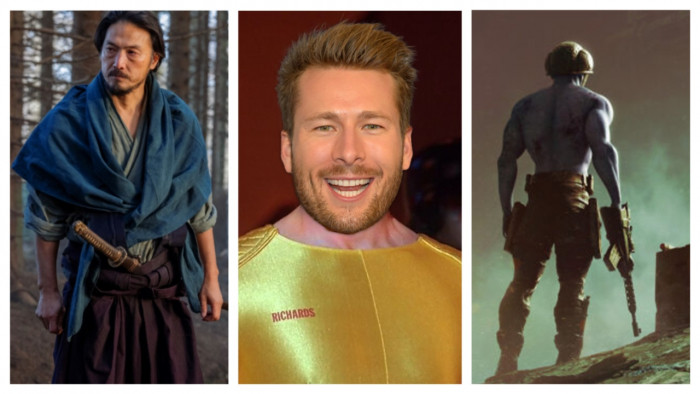Gary Oldman does not know how to work his television. “I’m not a technophobe,” he tells me, “but I’m a bit illiterate with it all. I think it’s a generational thing. I’m slow to pick it up. My sons can get a piece of machinery and, within minutes, somehow work it out. Almost instinctively they know what buttons to press, what windows to open, they know everything. But they’re 14 and 16, and it frustrates me. I’m not so good, so they have to do all that for me.”
This is Dracula, this is Lee Harvey Oswald. In Leon we watched him kill a whole family in a matter of minutes, yet he’s on the phone to me, sounding like a nana.
“What about iPads?” I ask him. “Can you do them?”
“I have an iPad,” he says, but I can tell from his tone he doesn’t like it, not how he likes cushions, teapots and leather gloves. Gary Oldman is such an incredible actor, he demands such huge respect, but there remains something funny about the thought of him sat on his sofa in his Los Feliz mansion, unable to work a remote as he tries to make Storage Wars appear on the magic box. The man who made his name as a blisteringly intense firebrand – the cocky wild man of the Brit Pack – thwarted by modern technology. Then again, there’s something undeniably, well, old school about Oldman.
Fairytale of New Cross
Gary Leonard Oldman was born in New Cross, south-east London in 1958. His mum was a housewife of Irish decent, his dad a violent alcoholic who once had trials for Millwall. According to Oldman, his father was ruthless, ruled with his fists and was a welder who happened to be sleeping with his best friend’s wife – he left his young family when Oldman was just seven. They were by now living in a small house in Deptford and did not have “two half pennies to rub together”.
By 1974 Oldman was already on a path to alcoholism and personal disaster – he left school aged 15 with no qualifications and worked dead-end jobs, including beheading pigs in an abattoir. Surprisingly, it’s a time he still pines for.
“It’s funny, but I do still miss a lot about south London,” Oldman tells me. “The chat of the people. I miss a lot of different things really, but particularly the camaraderie. There’s a humour that nobody else can get.”
Oldman, a keen pianist, wanted to become a professional musician, and when that didn’t work out he turned to acting with limited initial success. In 1976 he failed to get into Rada, and was advised to “try something else”. Yet still this abandoned and failing boy went on to become not just an award-nominated actor and director, but a national treasure and the de facto elder statesman of blockbuster cinema. Not that he’s particularly keen to wax lyrical about any of this.
Best of the bunch
Way back in November 2012, I visited Oldman on set during the filming of José Padilha’s intriguing RoboCop remake, and I spent an entire night in the cold as he refused to get out of his trailer. Last November, I was about to board a plane to meet him in LA, when he cancelled. Needless to say, he doesn’t really love interviews.
“I’m not the biggest fan of doing these things,” he politely explains, when I do eventually pin him down. At 1am on a Friday night. “It can be a bit much,” he says. “But I guess it’s the nature of the art, trying to work out what I’m supposed to say.”
The man speaks at times in little more than a whisper, stuttering, taking long pauses to consider what he has to say, but it feels good to finally hear his voice – a true British icon whose south London accent still has only the slightest California twang.
“This role [his part in RoboCop] was not something I was chasing,” he says. “I liked the original movie. Very much. I watched it again recently, and it’s still very good. The most striking thing rewatching it now is how technologically scary the whole thing is. By that I mean where we have come. The original was a far-fetched depiction of the future, but many aspects of it are almost a reality now. Robots were always a thing of the future. They were in science-fiction films, in Doctor Who. Now we talk about drones killing people while eating our dinner – it’s happening, and that’s one reason why I thought this might be an interesting film to go back to.”
In RoboCop, Oldman plays Dr Norton (a tweaked version of Bob Morton, the cyborg-inventing scientist in the original). It’s the kind of role that has become a strange trademark of his latter years. There is a generation who know him best as Commissioner Gordon in Chris Nolan’s Batman trilogy, or Sirius Black in the Harry Potter films. He is the safe hand now, an actor who adds weight and gravitas to a summer tentpole, yet his career began with him as the polar opposite. He was the reckless maverick, who only the toughest director would dare cast.
Despite Rada’s rejection, Oldman did eventually obtain a degree in theatre arts in the late Seventies and, after increasing success on the London stage, he burst into the world’s collective consciousness as Sid Vicious in the 1986 Sex Pistols film Sid & Nancy. It was his big moment, yet he called the work depressing and publicly undermined the director Alex Cox.
From then on in, Oldman earned a reputation for being wild and difficult, he famously even clashed with Francis Ford Coppola during the filming of Dracula, as he went from one eccentric villain role to another. He drank heavily, and had explosive high-profile relationships with Uma Thurman, Isabella Rossellini and Donya Fiorentino. In 1991 he was arrested for drunk driving after a night of hellraising with Kiefer Sutherland. Yet despite this (literal) personal car crash, his work on screen was incredible – JFK, True Romance, Immortal Beloved. It was Leon, however, that provided one of his finest ever performances as Norman Stansfield, the bent DEA officer with a taste for Beethoven and industrial-strength pills.
“People always want to know about Leon, it seems to be a real favourite of my films,” he says of the 20-year-old classic. “I lead a very normal life, but occasionally I get people wanting things from me, and that usually has something to do with Leon. I go shopping, I move around. But when I am stopped it’s still Leon they want to know about. Even now. I’m not sure why. It’s interesting.”
Time at the bar
In the late Nineties Oldman reached what can perhaps be now seen as the second of three distinct chapters of his career. He stopped drinking, (mostly) stopped playing eccentric villains and started to take a career path that his agent no doubt hated.
“Things happened. I was, for quite a few years, a single dad bringing up kids, so everything was different, really.”
His directorial debut Nil By Mouth – a double Bafta-winner and the only film he has directed to date – was an almost autobiographical and extremely violent look back at his troubled childhood in Deptford.
“I loved the time making that film, I loved it so much. There’s no down time as a director, which is, of course, such a huge contrast to being an actor. As a director you’re constantly engaged. The mind is constantly working, which is something I enjoyed at that time. And with Nil By Mouth I was surrounded by so many great people. It was a special time in my life. I would like to do it all again, go back to directing – I have a project and I am trying to get the money together. It’s not easy.”
Heading into the new millennium, Oldman appeared in Friends and played a line-dancer in Nobody’s Baby – a much-hyped film that was never released in cinemas. He was “a mysterious character descended from a leprechaun” in Interstate 60 – another straight-to-DVD affair – then a dwarf in Tiptoes. Not just a dwarf, but a dwarf furious about the fact that Matthew McConaughey, his regular-sized brother, had got Kate Beckinsale pregnant.
To some, it may have looked like he was in a slump. But suddenly Oldman began to get regular gigs in some of Hollywood’s biggest franchises – Batman, Harry Potter – which led to his Oscar-nominated, beautifully deft turn as George Smiley in Tinker Tailor Soldier Spy. It was the moment everyone remembered just how good he could be.
“In a way, every job is much the same,” he says. “I mean, once you’re there, a movie set is a movie set. I have just gone from the big-budget RoboCop to Dawn Of The Planet Of The Apes, which is somehow even bigger, and then to Child 44 with [director] Daniel Espinosa, which is an absolute fraction of the budget compared to the other two. All three of them have had the most incredible directors – men you would walk through walls for, but also men who are so clever and imaginative, and focused. It’s been a privilege to work with them.”
On song
At this point, Oldman tells me there is someone making a slit-throat gesture at him, which means, “Either I have to wrap up or I’m about to be murdered.” In a final few words, we talk about the little slice of working-class south London he takes with him, even to a set like RoboCop.
“I’ve got my ukulele,” he says, “which my mother bought me. I take that because it’s small and I can travel with it. I sit in my trailer and I play my ukulele to pass the time. Often there can be hours between shots, and oddly the waiting is just exhausting – you begin to drive yourself mad. So I sit, and I play old songs on my ukulele.”
So Gary Oldman is a man who might not be able to operate a TV, but can make a ukulele sing. Like I said, he’s old school. And you get the sense he wouldn’t want to be any other way.
RoboCop is at cinemas nationwide from 7 February
Latest
Related Reviews and Shortlists


The 10 best war movies of the 21st century









